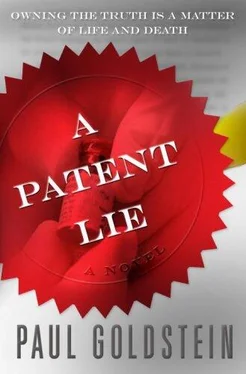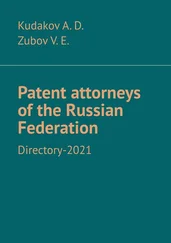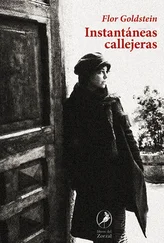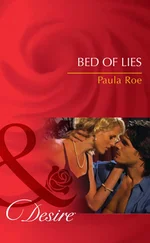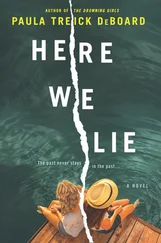Paul Goldstein - A Patent Lie
Здесь есть возможность читать онлайн «Paul Goldstein - A Patent Lie» весь текст электронной книги совершенно бесплатно (целиком полную версию без сокращений). В некоторых случаях можно слушать аудио, скачать через торрент в формате fb2 и присутствует краткое содержание. Жанр: Криминальный детектив, на английском языке. Описание произведения, (предисловие) а так же отзывы посетителей доступны на портале библиотеки ЛибКат.
- Название:A Patent Lie
- Автор:
- Жанр:
- Год:неизвестен
- ISBN:нет данных
- Рейтинг книги:3 / 5. Голосов: 1
-
Избранное:Добавить в избранное
- Отзывы:
-
Ваша оценка:
- 60
- 1
- 2
- 3
- 4
- 5
A Patent Lie: краткое содержание, описание и аннотация
Предлагаем к чтению аннотацию, описание, краткое содержание или предисловие (зависит от того, что написал сам автор книги «A Patent Lie»). Если вы не нашли необходимую информацию о книге — напишите в комментариях, мы постараемся отыскать её.
A Patent Lie — читать онлайн бесплатно полную книгу (весь текст) целиком
Ниже представлен текст книги, разбитый по страницам. Система сохранения места последней прочитанной страницы, позволяет с удобством читать онлайн бесплатно книгу «A Patent Lie», без необходимости каждый раз заново искать на чём Вы остановились. Поставьте закладку, и сможете в любой момент перейти на страницу, на которой закончили чтение.
Интервал:
Закладка:
Seeley heard the reprimand-she had not forgotten that he was from out of state-but he ignored it. Thorpe drew closer to his side, crowding him.
Seeley said, “This is about more than two parties, Judge. It implicates the integrity of this court.” He glanced sideways at Thorpe. His adversary's body was tensed, but the dark pouchy eyes gave away no secrets.
“Mr. Thorpe, you've been uncharacteristically silent. Will your client consent to my meeting ex parte with Mr. Seeley?” She leaned over the bench. “Just so you know, I'm not putting any pressure on you or your client to do so.”
“I can't say whether my client objects or not, Your Honor, without knowing what's on counsel's mind.”
Seeley would have said the same. He turned to see whether Barnum had arrived, and made a quick decision, regretting the implicit deception in what he was about to say. “There is a question about the veracity of testimony that was given last week. I'm sure Mr. Thorpe will understand our disinclination to explain this with our adversary present.” Steinhardt's brush with perjury last week could get Seeley into Farnsworth's chambers. It could also deflect any suspicion Thorpe might have that Seeley had discovered the collusion.
“Mr. Thorpe?”
“My client has no objection to an ex parte conference on this issue.”
Of course Thorpe had no objection. He already knew about Steinhardt's fraud and, as part of the parties' collusion, had carefully skirted it in his cross-examination.
The court reporter, who was taking down the exchange, looked up to the bench. Farnsworth said, “My meeting with Mr. Seeley will be on the record-”
“That's fine,” Seeley said, “but we request that it be sealed.” Not to seal the record would defeat the purpose of the meeting; anyone could see the transcript.
“Sealed is no problem,” Thorpe said.
“The meeting will be on the record and sealed.” Farnsworth nodded at the reporter to join her in chambers. “It will also be brief. I want both sides ready to proceed with trial in fifteen minutes.”
Seeley waited for the judge to descend the few steps from the bench, then followed her and the court reporter through the paneled door, down the narrow corridor to chambers. He passed the fluorescent-lit jury room where some of the jurors were already gathered, their takeout coffee cups and breakfast pastries on the conference table.
Inside chambers, Farnsworth's arms folded across her chest signaled impatience, but Seeley had already revealed too much to get this far, and she wasn't going to dismiss him easily. He moved in so that, tall as she was, the judge had to look up at him. The reporter set the steno machine on the coffee table and, perching herself on the edge of the couch, waited for one of them to speak.
“Emil Thorpe was generous to you out there,” Farnsworth said. “He could have embarrassed you in front of the press. Instead, you're going to get a private lecture from me.”
She moved back a step. “The rules here are the same as in New York. If you think a witness perjured himself, you talk to your client about it, not the judge.”
“Vaxtek's general counsel doesn't think there's a problem.”
“But you do.” She arched an eyebrow. “Have you talked to your client's CEO? To its board of directors?”
Sure, Seeley thought. That was how Pearsall got himself killed. “I'm certain they would only rubber-stamp their general counsel.”
Over the judge's shoulder, at the edge of the bay, a pair of towering construction cranes moved jerkily toward each other, then backed away, two stick insects mating.
“Which witness are we talking about?”
In the courtroom, with the court reporter taking down every word, Seeley had been careful not to use the word “perjury,” and he would not do so now. But whether the question was about perjury or just the witness's veracity was a lawyer's distinction at best.
“I believe that Alan Steinhardt kept two sets of lab notebooks, and that the fake set was introduced as an exhibit.”
“What proof do you have?”
“There's a conflict between the dates in one of the notebooks and Steinhardt's travel schedule. The notebook puts him in Vaxtek's lab in South San Francisco discovering AV/AS on days that he was out of the country.”
“And you don't think the defense would have caught this during discovery?”
This was the tenuous bridge that Seeley hoped would carry him from the pretext of perjury to the fact of the parties' collusion, but Farnsworth could crush it in an instant.
He said, “St. Gall could have discovered it. They probably did discover it. But they would not be inclined to raise the point at trial.”
Farnsworth walked to a chair by the long window and gestured for Seeley to take the one across from it. She sat and crossed her legs. “What do you mean, St. Gall wouldn't raise it at trial?”
Judge Farnsworth knew what he meant. The court reporter's fingers waited, half an inch above the keyboard.
The words caught on Seeley's tongue, then freed themselves. “I believe this is a collusive lawsuit, Judge. I believe that Vaxtek and St. Gall have staged this case to get a ruling that the patent is valid.”
Farnsworth colored deeply, and Seeley saw at once that he had miscalculated.
“This is way out of bounds, Counselor. Do you want the reporter to read back the representation you made in the courtroom that this meeting was going to be about perjury?”
Seeley didn't know what the anger was about-his misrepresentation in court or the charge of collusion now-and he struggled to respond.
Farnsworth said, “Emil Thorpe needs to be here.”
The naivete behind the statement stunned him. It was as if he had done no more than point out a small infraction of courtroom etiquette, a matter for the lawyers to adjust discreetly between themselves. Then Seeley realized that Farnsworth had no reason to make the connection that he had drawn at once: Pearsall was dead because he had discovered the collusion and confronted the parties on it. These are not only people who collude; these are people who kill.
“My courtroom, as you may have discovered, is not a comfortable place for lawyers who think the rules weren't made for them.”
“I'm talking about a fraud on your court.”
Farnsworth's eyes grew careful, and for the first time it appeared that she understood the magnitude of his charge. “Are you telling me that you want to withdraw as counsel?”
Seeley shook his head. That was probably what Pearsall had tried to do.
“For the record,” Farnsworth said to the reporter, “counsel shook his head no.” She turned back to him. “What would you have me do?”
“Declare a mistrial.”
“That's out of the question. What evidence do you have that the lawsuit is collusive?”
A sleepless night piecing together the puzzle and an hour cross-examining Palmieri over his part in it was all that Seeley had. The judge was right, and the red-and-tan law reports that filled her wall mocked him. We have cases, facts, and law, the volumes said. What do you have? How many times had Seeley ventured out like this, without a shred of evidence to support him, with nothing but the certainty that he was right and that he could impose that conviction on anyone he needed to.
He said, “If the parties aren't colluding, why didn't Thorpe ask Steinhardt about the discrepancy in his dates?”
“There could be any number of reasons. Maybe he doesn't know about the discrepancy, or maybe he does, but he has some other strategy. I am sure that if he were here, he would tell us.”
Again, Seeley ignored the reprimand. “There's a difference between knowing something and being able to prove it according to the rules of evidence.”
Читать дальшеИнтервал:
Закладка:
Похожие книги на «A Patent Lie»
Представляем Вашему вниманию похожие книги на «A Patent Lie» списком для выбора. Мы отобрали схожую по названию и смыслу литературу в надежде предоставить читателям больше вариантов отыскать новые, интересные, ещё непрочитанные произведения.
Обсуждение, отзывы о книге «A Patent Lie» и просто собственные мнения читателей. Оставьте ваши комментарии, напишите, что Вы думаете о произведении, его смысле или главных героях. Укажите что конкретно понравилось, а что нет, и почему Вы так считаете.
